Anti-Racism
Read a nonfiction book about antiracism.
June 1, 2021
What is anti-racism?
Anti-racism is more than just being non-racist. It involves conscious efforts and deliberate actions to provide equal opportunities for all people, both individually and on a larger scale.
Anti-racism can mean acknowledging personal privileges, confronting acts and systems of racial discrimination, and working to change personal racial biases.
This list is part of the 2021 Adult Summer Reading program.
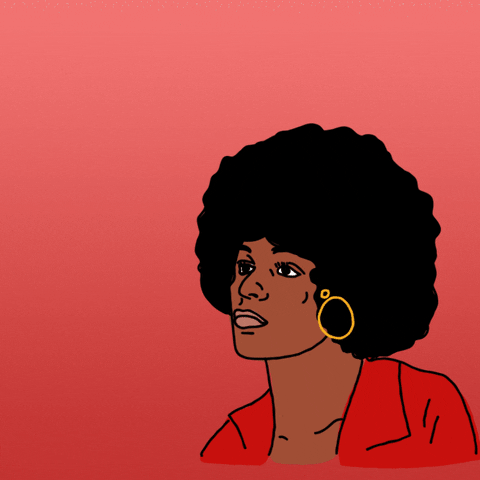
Between the World and Me
Ta-Nehisi Coates
The author presents a history of racial discrimination in the United States and a narrative of his own personal experiences of contemporary race relations, offering possible resolutions for the future.
Biased
Uncovering the Hidden Prejudice That Shapes What We See, Think, and Do
Jennifer L. Eberhardt
A Stanford professor, MacArthur grant recipient and leading expert on unconscious racial bias examines the manifestations of automatic racism in today’s world and how they influence contemporary race relations and criminal justice.
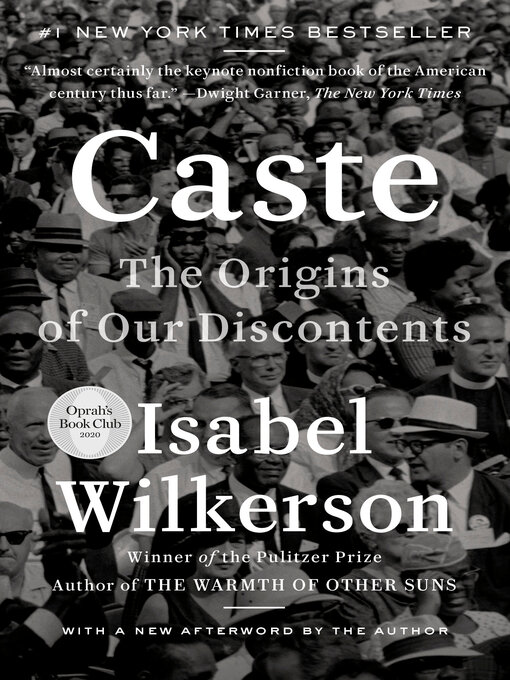
Caste
Isabel Wilkerson
The Pulitzer Prize-winning author of The Warmth of Other Suns identifies the qualifying characteristics of historical caste systems to reveal how a rigid hierarchy of human rankings, enforced by religious views, heritage and stigma, impact everyday American lives.
Charged
The New Movement to Transform American Prosecution and End Mass Incarceration
Emily Bazelon
A Times Magazine investigative journalist exposes the unchecked power of the prosecutor as a driving force in America’s mass incarceration crisis, offering strategic recommendations for reversing discriminatory practices without changing the law.
The Color of Law
Richard Rothstein
Argues that laws and policies created by local, state, and federal government deliberately promoted segregation in metropolitan areas during the twentieth century, creating long-lasting consequences.
Do Better
Spiritual Activism for Fighting and Healing From White Supremacy
Rachel Ricketts
Thought leader, racial justice educator, and sought-after spiritual activist Rachel Ricketts offers mindful and practical steps for all humans to dismantle white supremacy on a personal and collective level. Includes culturally informed, secular spiritual exercises, such as guided meditations, transformative breathwork, and journaling prompts.
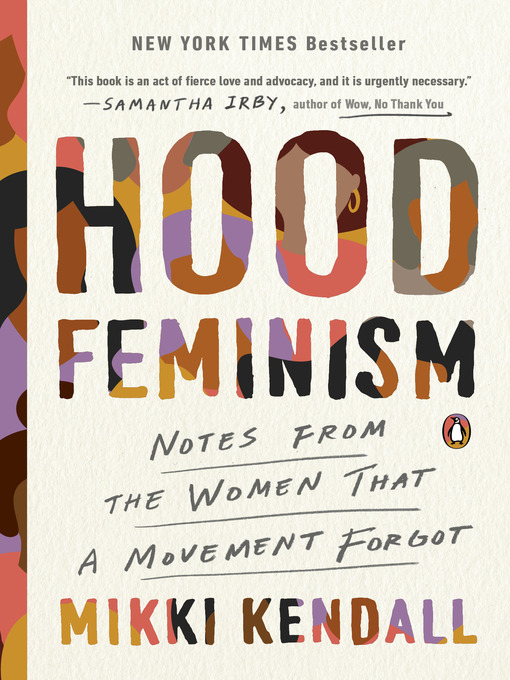
Hood Feminism
Notes From the Women That a Movement Forgot
Mikki Kendall
An award-winning writer and frequent guest speaker presents a compelling critique of today’s black feminist movement that argues that modern activism needs to refocus on health care, education and safety for all women instead of a privileged few.
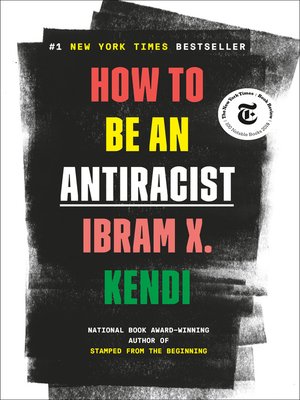
How to Be an Antiracist
Ibram X. Kendi
A best-selling author, National Book Award-winner and professor combines ethics, history, law and science with a personal narrative to describe how to move beyond the awareness of racism and contribute to making society just and equitable.
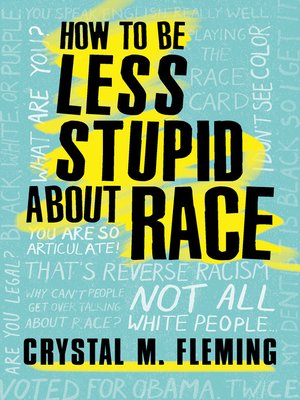
How to Be Less Stupid About Race
On Racism, White Supremacy, and the Racial Divide
Crystal M. Fleming
An essential guide to breaking through the half-truths and misconceptions that have corrupted the way race is represented in the classroom, pop culture, media and politics, this book represents a sobering and urgently needed call to action for everyone who wants to challenge white supremacy and intersectional oppression.
How We Fight for Our Lives
Saeed Jones
Written from the crossroads of sex, race, and power in America, How We Fight for Our Lives is a stunning coming-of-age memoir and a haunting reflection of the nation as a whole.
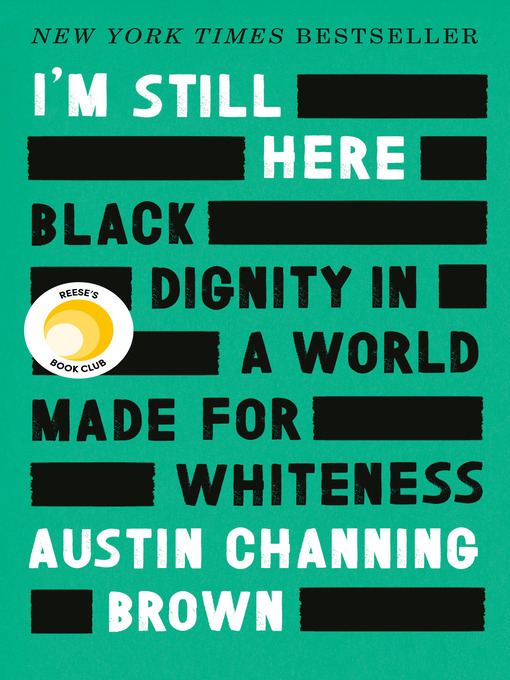
I’m Still Here
Black Dignity in a World Made for Whiteness
Austin Channing Brown
The author shares her experiences of growing up black, Christian, and female in white America, exploring the country’s racial divide at all levels of society and how overcoming apathy and focusing on God’s work in the world can heal persistent divisions.
The Inner Work of Racial Justice
Healing Ourselves and Transforming Our Communities Through Mindfulness
Rhonda V. Magee
Law professor and mindfulness practitioner Rhonda Magee shows that the work of racial justice begins with ourselves. It is only by healing from injustices and dissolving our personal barriers to connection that we develop the ability to view others with compassion and to live in community with people of vastly different backgrounds and viewpoints. Incorporating mindfulness exercises, research, and Magee’s hard-won insights, The Inner Work of Racial Justice offers a road map to a more peaceful world.
Just Mercy
A Story of Justice and Redemption
Bryan Stevenson
The founder of the Equal Justice Initiative in Montgomery, Alabama recounts his experiences as a lawyer working to assist those desperately in need, reflecting on his pursuit of the ideal of compassion in American justice.
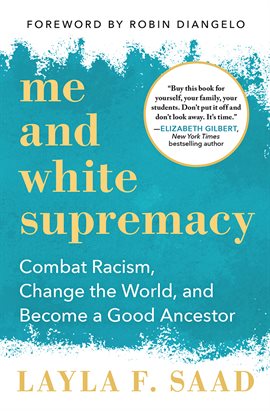
Me and White Supremacy
Layla F. Saad
Updated and expanded from the original edition, Me and White Supremacy teaches readers how to dismantle the privilege within themselves so that they can stop (often unconsciously) inflicting damage on people of color, and in turn, help other white people do better, too.
The Middle of Everywhere
Helping Refugees Enter the American Community
Mary Pipher
The best-selling author of Reviving Ophelia presents a stirring glimpse of the world beyond our borders, told through the tales of refugees who have escaped countries riddled by conflict and ripped apart by war to realize their dream of starting a new life in America, vividly detailing their triumph over adversity.
Missoula
Rape and the Justice System in a College Town
Jon Krakauer
Chronicles the experiences of several women in Missoula, Montana, who claimed to be raped by University of Montana football players, highlighting the inequities of the law in regard to rape allegations and the treatment of rape victims and perpetrators.
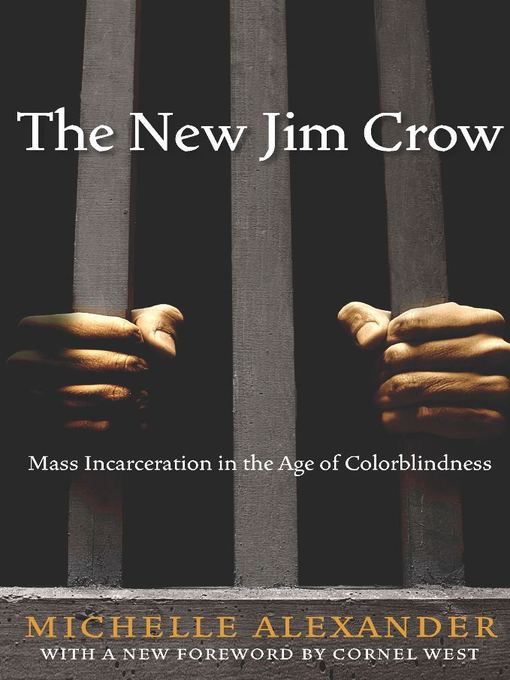
The New Jim Crow
Mass Incarceration in the Age of Colorblindness
Michelle Alexander
Argues that the War on Drugs and policies that deny convicted felons equal access to employment, housing, education, and public benefits create a permanent under caste based largely on race.
On the Other Side of Freedom
The Case for Hope
DeRay Mckesson
An internationally recognized civil rights activist and popular host of Pod Save the People presents a meditative call to arms on resistance, justice and freedom on the front lines of the Black Lives Matter movement.
Punishment Without Crime
Alexandra Natapoff
Takes a look at the inner workings of the massive petty offense system within the United States, exposing the consequences of this flawed system, including sending innocent people to jail and reinforcing racial inequities.
Race Against Time
A Reporter Reopens the Unsolved Murder Cases of the Civil Rights Era
Jerry Mitchell
An award-winning investigative reporter shares the real-life detective story of how Klansmen came to justice in notorious unsolved civil rights cold cases–decades after they had gotten away with murder.
Separate
Steve Luxenberg
Documents the story of the infamous nineteenth-century Supreme Court ruling in favor of segregation, tracing the half-century of history that shaped the ruling and the reverberations that are still being felt today.
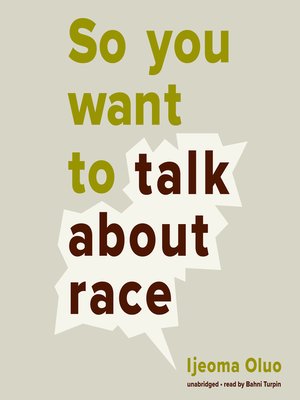
So You Want to Talk About Race
Ijeoma Oluo
Examines the sensitive, hyper-charged racial landscape in current America, discussing the issues of privilege, police brutality, intersectionality, micro-aggressions, the Black Lives Matter movement, and the “N” word.
Stamped From the Beginning
Ibram X. Kendi
A comprehensive history of anti-black racism focuses on the lives of five major players in American history and highlights the debates that took place between assimilationists and segregationists and between racists and anti-racists.
The Sum of Us
What Racism Costs Everyone and How We Can Prosper Together
Heather McGhee
The Sum of Us is a brilliant analysis of how we arrived here: divided and self-destructing, still the richest country in the world, but spiritually starved and vastly unequal. At the heart of the book are the humble stories of Americans yearning to be a part of a better America, including white supremacy’s collateral victims: white people themselves. With startling empathy, this heartfelt message from a Black woman to a multiracial America leaves us with a vision for the future of our country–one whose population has ties to every place on the globe–where we finally realize that life can be so much more than zero-sum.
The Sun Does Shine
How I Found Life and Freedom on Death Row
Anthony Ray Hinton
A man who spent thirty years on death row for a crime he did not commit describes how he became a victim of a flawed legal system, recounting the years he shared with fellow inmates who were eventually executed before his exoneration.
Tears We Cannot Stop
A Sermon to White America
Michael Eric Dyson
A call for change in the United States argues that racial progress can only be achieved after facing difficult truths, including being honest about how black grievance has been ignored, dismissed, and discounted.
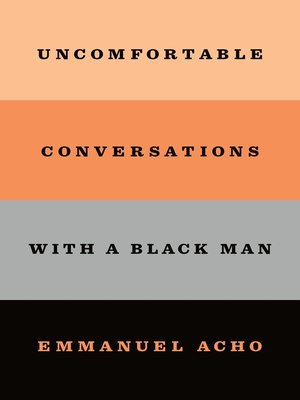
Uncomfortable Conversations With a Black Man
Emmanuel Acho
In Uncomfortable Conversations With a Black Man, Acho takes on all the questions, large and small, insensitive and taboo, many white Americans are afraid to ask–yet which all Americans need the answers to, now more than ever. With the same open-hearted generosity that has made his video series a phenomenon, Acho explains the vital core of such fraught concepts as white privilege, cultural appropriation, and ‘reverse racism.’
The Ungrateful Refugee
What Immigrants Never Tell You
Dina Nayeri
In her first work of nonfiction, winner of the 2018 UNESCO City of Literature Paul Engle Prize Dina Nayeri–an author whose “exploration of the exile’s predicament is tender and urgent” (The New Yorker)–examines what it means to be a refugee through her own story of childhood escape from Iran, and through the stories of other refugees and asylum seekers.
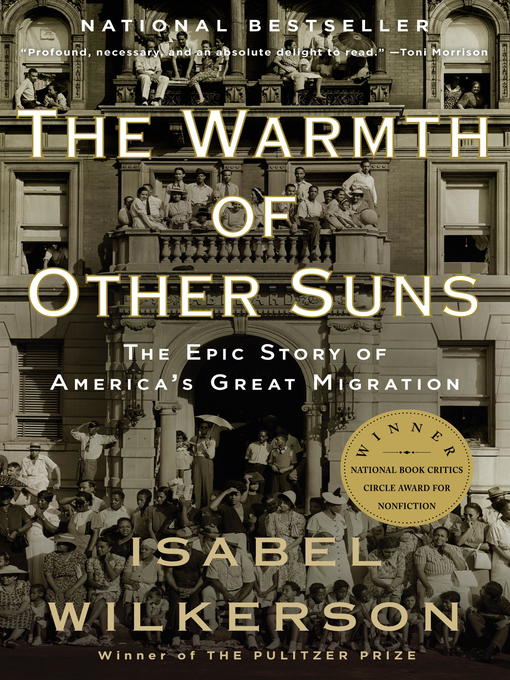
The Warmth of Other Suns
Isabel Wilkerson
An epic history covering the period from the end of World War I through the 1970s chronicles the decades-long migration of African Americans from the South to the North and West through the stories of three individuals and their families.
When They Call You a Terrorist
A Black Lives Matter Memoir
Patrisse Khan-Cullors, Asha Bandele
A memoir by the co-founder of the Black Lives Matter movement explains the movement’s position of love, humanity, and justice, challenging perspectives that have negatively labeled the movement’s activists while calling for essential political changes.
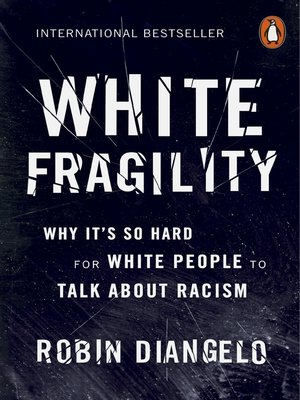
White Fragility
Why It’s So Hard for White People to Talk About Racism
Robin DiAngelo
Analyzes defensive moves that white people make when racially challenged, how these actions protect racial inequality, and presents strategies for engaging more constructively in these conversations.
